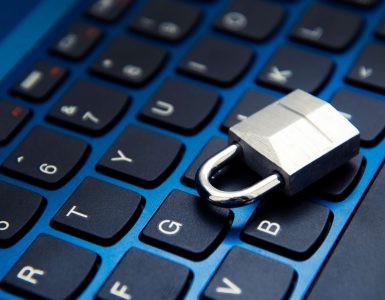Another October is upon us, which means our Cyber Security Awareness reminders are in order. Each year the government recognizes October as the month for which we need to renew our efforts at understanding what our online footprint is, and how to keep it safe.
The theme for 2019 is Own It–Secure It–Protect It. Today, we take an inside look at the first part of the theme – Own It.
Own It begins with you. Each of us have a responsibility to work in community to combat Cyber criminals. An educated user group is less likely to become victims to digital crimes. These 4 tips provided by Homeland Security are good practice to put into place not only when traveling, but as a general rule:
- Stay updated with all current patches to all of your devices
- Backing up information is a must. Be consistent and routine in this practice, as restoring information is expensive and timely.
- Lock your devices when not in use. Be sure that your PIN number and password are not obvious and easy to crack.
- Use multi factor authentication if you can. This requirement to have double access points in order to access important accounts or information is essential in the fight to maintain privacy of your data.
When you are traveling, an additional step to take is to disable auto-connecting features of your devices. You will want to be able to control the wifi access of your devices manually.
The 3 main areas of Own It that are featured this year are in the areas of Social Media Cyber Security, Online Privacy and the Internet of Things (use of IoT devices).
Social Media Cyber Security
Let’s first take a look at the statistics:
- 3.48 billion people worldwide use social media platforms. Simply put, 45% of the worldwide population is wired into social media.
- The digital consumer spends about 2.5 hours on social media networks or messengers each day
- 69% of US adults use at least 1 social media site and the average American has 7.1 social media accounts
This means that people spend a lot of time taking, chatting, reading, posting and investing their life into social media. However, most people do not remember that the internet is almost a forever-ever land. In order to protect your personal identity, online presence, and internet reputation, an urgent sense of ownership is required. Let’s be sure to use these advices to better protect what is most important- you!
- You cannot hit the delete button fast enough. Items you share or post, even when deleted, are likely seen by someone within seconds of posting it. Be sure to share with care!
- Privacy is an ongoing struggle. Update- don’t wait. Be sure to know what your privacy settings are and what apps you are sharing information on.
- Disable geotgagging. People just do not need to know your physical location, unless you tell them personally. Be rid of the grid.
- Be sure you trust who you connect with. Avoid being deceived into connecting with people you really do not know. On the internet, strangers are dangers.
- Be like an etch and sketch. Your information that you share needs to be limited in its nature, worth little to criminals, and protective to your identity. When you are not online, your footprint should be innocuous.
- Don’t be intimidated. If something posted about you makes you uncomfortable, ask for it to be removed. If necessary, escalate your concern, or concern of any suspicious activity, to the appropriate individuals. If you see something, say something.
Online Privacy
The facts are just staggering:
- 64% of U.S. adults have been the victim of a major data breach impacting their personal data
- As a result, 69% of consumers believe companies are vulnerable to Cyber attacks
- 49% of Americans believe their data is less safe than it was 5 years ago
The 49% figure rises to 58% when that same question is asked of people 50 years and older. This creates an aging population concerned with online privacy and security. Here are some best practice tips for easing this struggle:
- Owning it means guarding it. As previously discussed, used multifactor authentication (MFA) to protect unwanted access. Every door needs an extra deadbolt on it in high crime areas.
- There is strength in length. People treat passwords as the path of least resistance. Short sweet and simple. After all, better to remember than to reset. Wrong! Complexity lies in the length of your password, and even in the use of password phrases. Make your passwords as long as possible. Customize them by site and keep them different from each other.
- Execute routine updates. An absent mind may end up with an empty computer. Set your updates to automatically execute.
- Rinse and repeat. The tips we provided earlier are redundantly utilized to keep your online presence clean as possible. Follow those advices and improve your connection experience.
The Internet of Things
Americans loves toys and we have a lot of them. Our homes are filled with all the latest there is to offer, and we call them alarm monitoring systmes, cameras, Alexa, washing machines, garage door openers, sump pump systems, thermostats, light fixtures, computers, TVs and so much more. So, what is the big deal?
The Internet is a giant toy box for all of these toys. Who is in your toybox, and why should you care? Did you know:
- All of these things and more contain sensing devices and can talk to another machine and trigger other actions. This means they can be talked to as well.
- If we want to connect to these devices, we have to expose some of our private information to do it.
- The security of these devices and your information is not always guaranteed or protected. An internet connection becomes an unlocked door to your stuff.
Knowing it is owning it. The best way to stay protected in an IoT world is to follow all of the previous tips we have suggested. Additionally, keep your home and business networks secure, and if possible, use Virtual Private Networks (VPN) as an additional layer of security. After all, what a bad guy cannot see he cannot steal.
Non-physical fires arising from Cyber security attacks are destroying American businesses every day. How we behave online works in direct correlation to what we deal with in unauthorized access to our devices and our data.
Do not be a Jiminy Clickit and always remember to have a safe browsing day.
Take an inside look at all three themes for 2019: Own It–Secure It–Protect It.



















